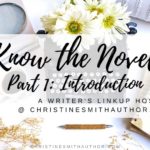Dear Reader: I Think I Want to Write
 Dear Reader,
Dear Reader,
Yes, I know. This was meant to be Dear READER. And today, the reader somehow turned into a writer!
It happens in real life, as well as in a blog series.
It happens—lots of times—at just the stage of life you’re in now. You’ve always loved books. You’ve been a reader all your life. And now, a question starts to peek around the corners of your mind.
What if I thought about writing?
Writing: Craft, Career, or Call?
This is a good question to answer—or at least to keep in the back of your mind—as you approach your writing journey.
 For some authors, writing is a craft or hobby. It’s something they love, and do part time, or on a recreational basis. Other authors approach writing as a career. It is their primary day-to-day work—the way they make their living. Still other authors see writing as a calling. They have felt God summon them to this work as His specific will for them—perhaps even as the primary way they will serve Him in their generation.
For some authors, writing is a craft or hobby. It’s something they love, and do part time, or on a recreational basis. Other authors approach writing as a career. It is their primary day-to-day work—the way they make their living. Still other authors see writing as a calling. They have felt God summon them to this work as His specific will for them—perhaps even as the primary way they will serve Him in their generation.
Which is the right answer? IS there a right answer?
Personally, I don’t believe there is. Whether writing is going to be a craft, a career, or a call in your life, doesn’t change the fact God wants you to use your talents for His glory. At the same time, articulating the way you see writing, can help you make choices that will be helpful to your individual vision along the journey.
What Comes First?
I get asked this question, on occasion. Usually by the mothers of young writers, rather than the writers themselves! (For whatever reason, young writers can be shy.)
Anyhow, here are a few “first steps” for pursuing an interest in writing:
1) Read Great Books.
This one’s more important than it sounds! Authors, like preschoolers, learn by imitation.
The books you read will, to a certain extent, define the books you write. So read books you’d find worth writing!
It’s not a waste of time. It’s not just relaxation. I have yet to meet a writer who was not also an avid reader.
2) Write Lots.
Don’t be afraid to experiment. Don’t be afraid to write.
Start typing out a new story every time an idea hits you. Maybe you’ll never get past a first chapter. That’s actually pretty normal. The time will come when you’re ready for more structure—and when you’ll find yourself persevering through thousands, and then tens of thousands, of words. But the very beginning of your writing career is not the time to preach discipline. The very beginning of your writing career is about getting words onto paper.
Even if it means starting three hundred docs that get relegated to the “incomplete” folder, before you’ve started writing a second chapter. Who cares? You’re getting practice writing first chapters. And first chapters are essential to good books.
3) Read About Writing.
This one comes with a disclaimer.
Reading books/articles/blog posts about writing will introduce you to a ton of valuable info. It will get you familiar with a bunch of jargon terms, open your eyes to some foundational techniques, and cause you to notice all kinds of things you never saw before when you read books.
The disclaimer is simply that writers find in extremely tempting to be arbitrary when it comes to discussing writing methods. Learn as much as you can from everyone who’s willing to teach you—but remember that even a writing “rule” is never an inflexible law.
You are unique. Your writing will be, too. So, yes, learn from the methods of others. Yes, accept constructive criticism, when it comes from authors/editors you respect, and who understand and empathise with your target readership. But while welcoming helpful advice, hold it very loosely. Be helped by what is helpful, but give yourself 100% permission to set aside what is not.
4) Find Some Writing Support.
Have you ever felt as if being a writer would make you seem just a little bit crazy? After all, who spends hours meticulously documenting the conversations of people who never even existed? Who jumps up and down because they’ve finally found the one word in the whole thesaurus that actually captures the idea they wanted to express? Writing may make you crazy—but it definitely doesn’t make you alone. And the support of other crazy writers can be valuable.
This is where I am inserting a totally biased, shamelessly obvious PLUG!!!
If you are a Christian young lady, looking for writing support in an unbuilding, mutually-encouraging community, may I recommend the King’s Daughters’ Writing Camp. KDWC is completely online. (No, you don’t have to travel to a physical camp!) I have had the privilege to be first a camper, and then a councillor (or “auntie”) at the King’s Daughters’ Writing Camp, and it has been quite simply one of the most amazing parts of my writing journey.
If you haven’t checked it out before, do so today! Registration for March camp is already open.
Dear Reader: Do You Think You Want to Write?
The journey of learning to write isn’t something that happens overnight. If God is placing in your hands a talent for words, or a talent fir imagination, or any other talent that turns itself mysteriously into sheets of manuscript—then He’s going to walk with you along the path.
Dear reader, don’t hesitate to step out in faith.
He will be beside you every step of the way.

American reading may be on the decline, but does that mean you’re old-fashioned, irrelevant, or just plain weird, if you still love a good book?

Do you ever wonder what goes on before the first words of the first draft of an outline are even penned? Today I’d like to take you behind the scenes of By This Shall They Know—at the journey to Maple Creek.

Ever wished you could take a peek behind the scenes at the process of planning and drafting a novel? Christine Smith’s Know the Novel linkup offers the chance to do just that!

